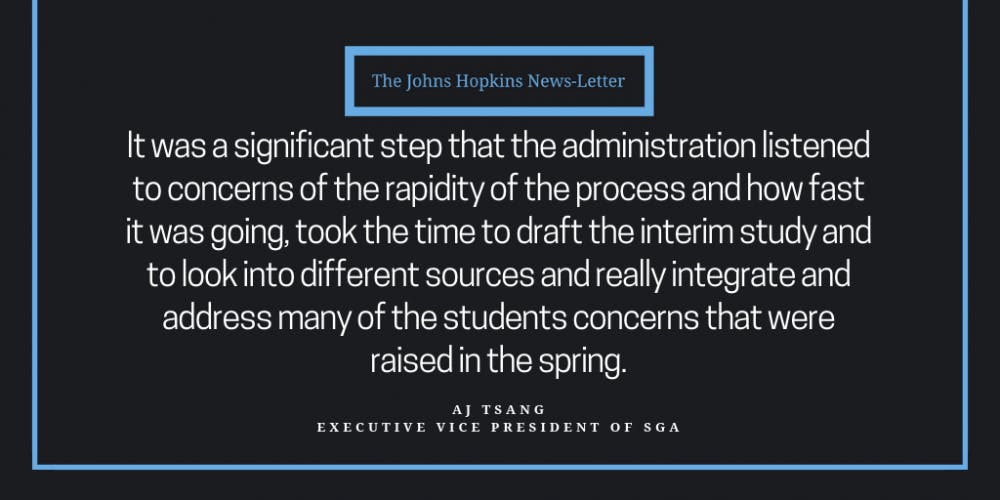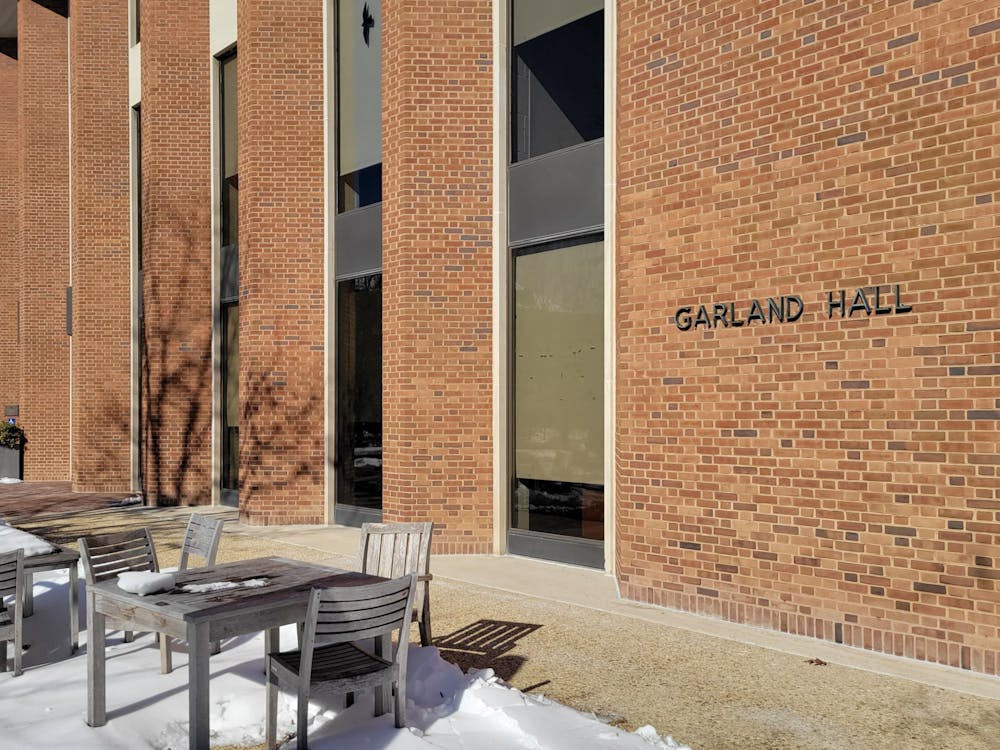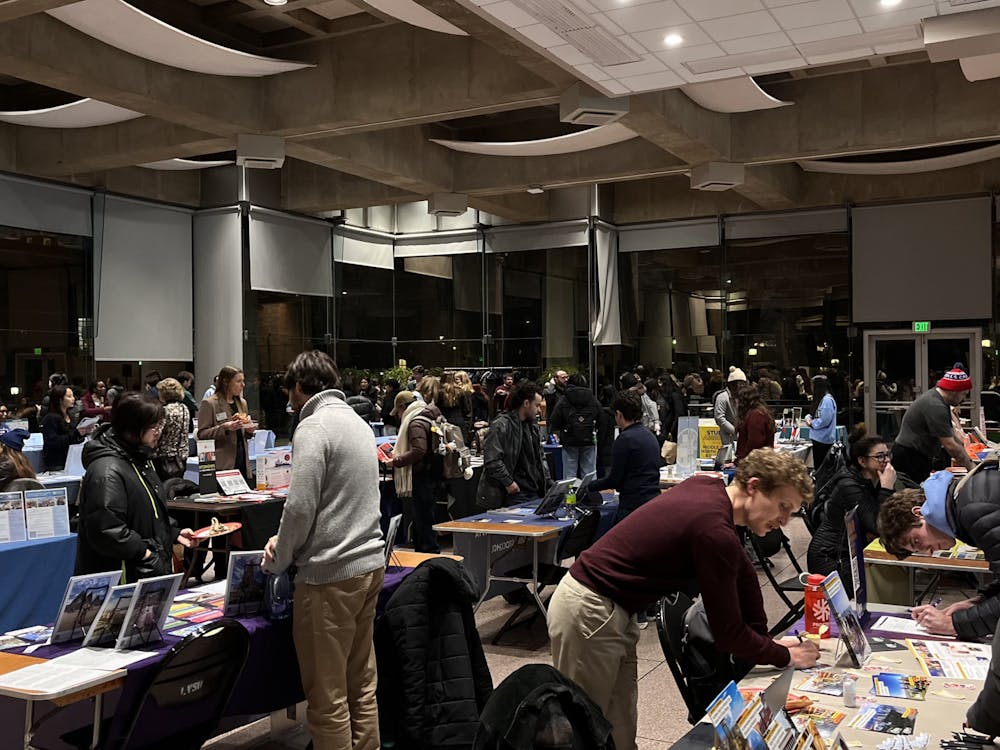University President Ronald J. Daniels and Dean of Medical Faculty Paul B. Rothman announced the Interim Study Report on Hopkins public safety in an email on Dec. 21. The report includes feedback from University employees, students and staff.
In the report, Hopkins also analyzed data from colleges who already have a private police system in place, such as Harvard University and the University of Maryland. The report was created in response to the Committee Chair of the Maryland State Legislature asking Hopkins to conduct more research on its proposed private police force.
Hopkins is seeking to implement a private police force in part due to the rising rate of violent crime both on campus and in Baltimore, the report explains. According to the study, from 2014 to 2017, Baltimore City saw a 47 percent increase in violent crime. The report also noted that there was a 350 period increase in aggravated assaults and a 250 percent increase in robberies during this time period.
The report also describes the University’s non-security based efforts to reduce crime, including programs such as Roca and Safe Streets Baltimore. Both programs provide at-risk youth with support in the form of health resources or skills training in an effort to disrupt the cycle of incarceration and poverty. The University’s multi-million dollar investments in the blue light and Blue Jay Shuttle technologies further demonstrates its efforts in safety measures, the report claims.
The report offered four solutions for the University’s safety concerns. These proposed solutions include improving the current security operation, adding private armed security guards, adding officers from the Baltimore Police Department and creating a University owned police force.
According to the report, community members have voiced concerns about the violence and crime and they desire to live in safer communities. The study also found through an online poll of 96 people that even opponents of the private police force initiative frequently mentioned concerns about crime in their feedback.
A significant number of individuals also voiced support via one-on-one conversations and email, according to the report. Stakeholders, especially parents, alumni and trustees, watched livestreams of the group meetings and expressed their support by sending letters, calling the University or weighing in online during meetings. Many students, the report explained, felt uncomfortable voicing their support for a Hopkins police force during the public meetings and instead submitted their feedback privately on the public safety website. The report also cited instances where community members clarified that their criticism of the proposal was not equal to lack of support for the initiative.
However, some students expressed their concern about the intentions behind the release of the Interim Study Report. In an email to The News-Letter, junior Alicia Badea, a member of the student organization Students Against Private Police (SAPP), explained that she believes that the University has still not sufficiently addressed concerns brought up by community members during public forums.
“The Interim Study makes clear the JHU administration’s interests: building a narrative to push their bill through, rather than genuinely responding to residents’ and students’ concerns,” she wrote. “Community feedback and thorough research were two of the legislature’s requirements of JHU in this interim period — and the admin has undertaken, and presented the results of, neither in good faith.”
Other students, such as Executive Vice President of the Student Government Association (SGA) AJ Tsang, believe that the release of the report is a step in the right direction, especially given negative feedback surrounding the introduction of the bill last spring.
“I was really glad that they released it in itself, especially given the feedback that our student body had raised last spring, that the SGA had raised in both public and private settings with [University] President [Ronald J.] Daniels,” he said. “It was a significant step that the administration listened to concerns of the rapidity of the process and how fast it was going, took the time to draft the interim study and to look into different sources and really integrate and address many of the students concerns that were raised in the spring.”
The study noted that opposition to the bill mainly focused on a distrust of law enforcement and experiences with racial profiling.
The report also acknowledged that the University has garnered an unfavorable reputation among some for its response to crime.
“We are also aware that Johns Hopkins is viewed by some as having a mixed record on addressing crime, with some residents viewing the institution as complicit in the health and economic disparities that contribute to it, and with some students, faculty, staff, and alumni having had negative experiences with Johns Hopkins’ current security operation,” the report reads.
Should Hopkins institute its own private police department, the report insists police personnel will practice “rightful policing.” This method emphasizes trust and procedural justice, and police assume a guardian role in the community. Hopkins police would, the report says, respect and listen to all people, rather than assuming an abrasive and punitive stance.
According to Badea, the language surrounding these methods of policing can be problematic.
“What Hopkins is aiming at is not genuine, substantive cooperation and conversation, but persuasion, for a goal that ultimately increases their own power. They cite... a ‘guardian model’ of policing, as opposed to a ‘warrior’ one. But it is exactly this positing of JHU as a benevolent overseer that knows what’s better for Baltimore, [more] than Baltimore residents themselves do, that is part of the problem, and part of the false narrative,” she wrote.





